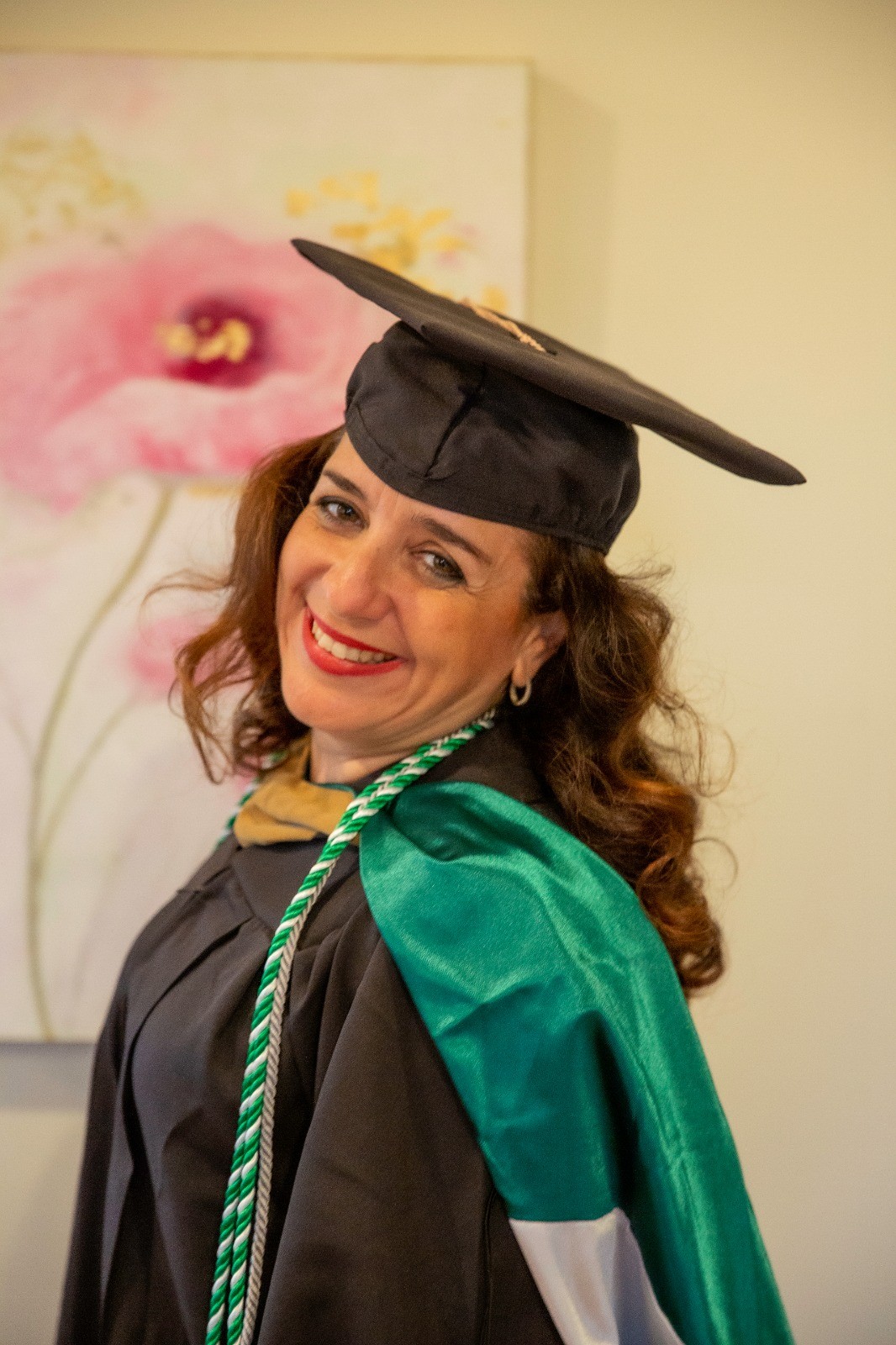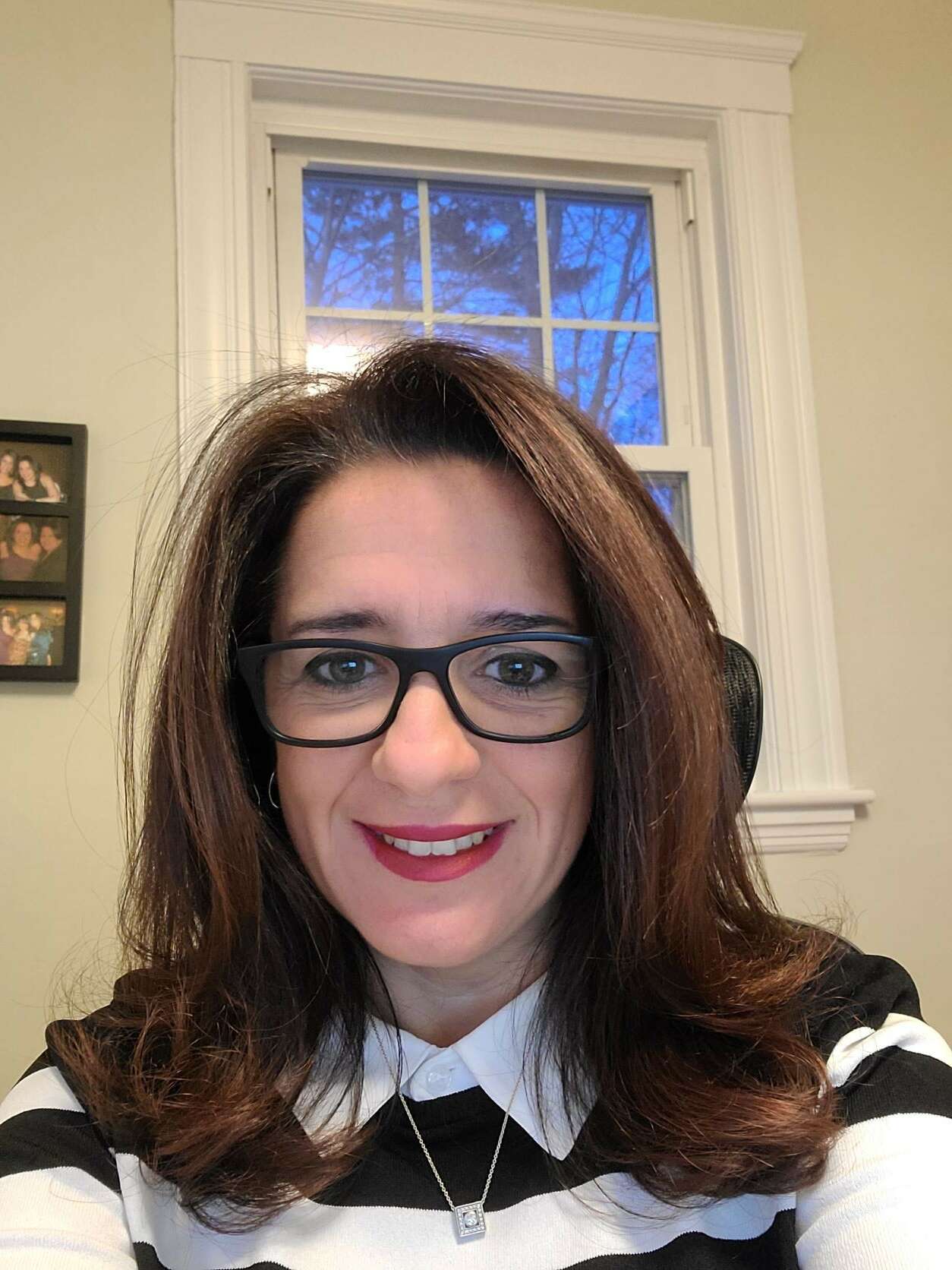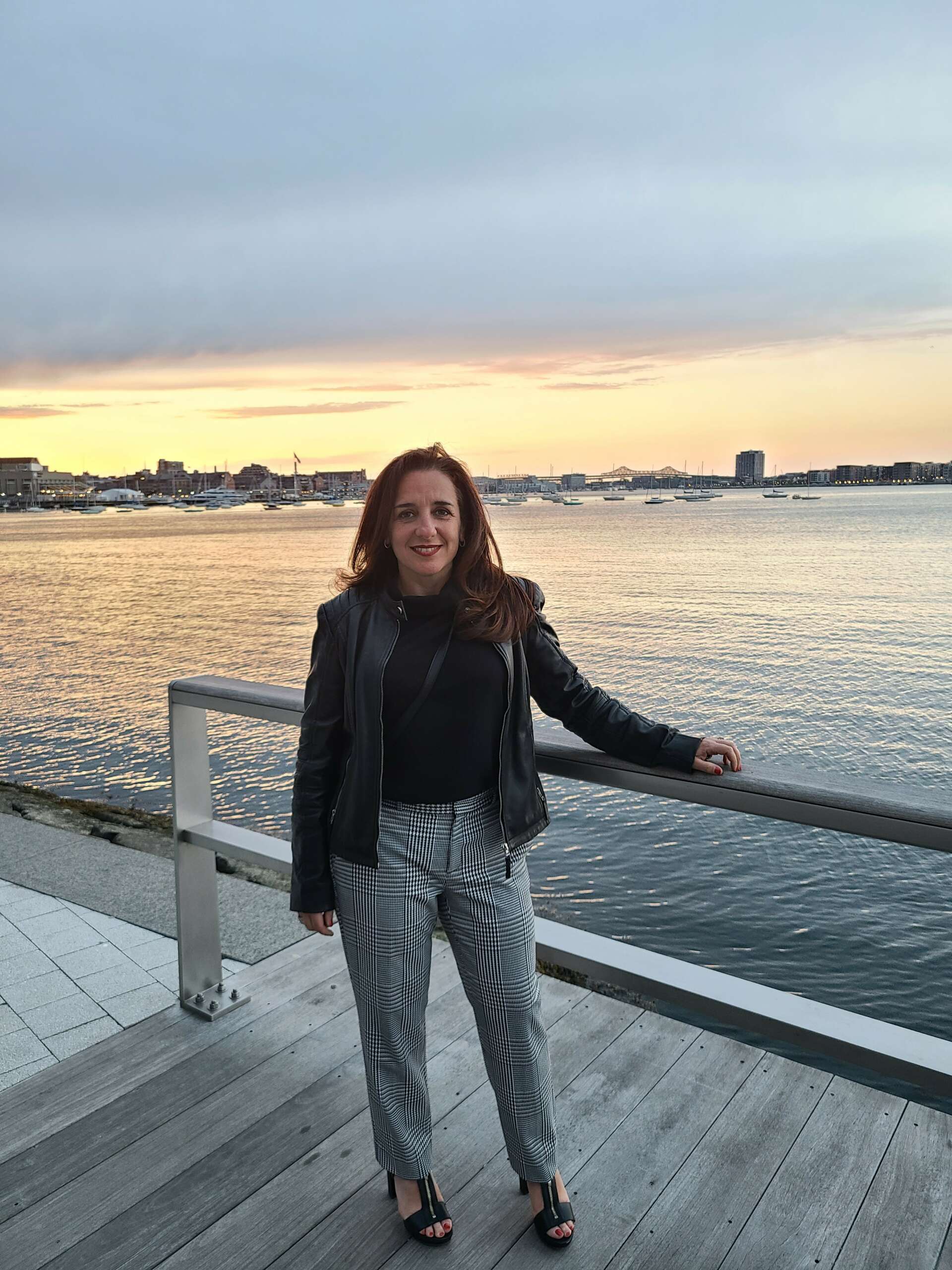Alright – so today we’ve got the honor of introducing you to Nathalya Mamane. We think you’ll enjoy our conversation, we’ve shared it below.
Nathalya, looking forward to hearing all of your stories today. It’s always helpful to hear about times when someone’s had to take a risk – how did they think through the decision, why did they take the risk, and what ended up happening. We’d love to hear about a risk you’ve taken.
The biggest risk I’ve taken in my life was to start a diagnostics company on my own, with no scientific or medical background, after years in the hospitality industry. It was a risk I took because I saw a problem in my own life and realized how many other people across the country and the world were impacted by the same problem, and I wanted to find a solution. For me, forming RT MicroDx was never one big leap or one big moment – it was just a problem I saw and the need to put one foot in front of the other every day, even on the hard days – to work toward a solution. I believe that risk – and change – don’t happen in big leaps, but rather in small, everyday moments, fueled by passion and persistence.
As a mom of four, I saw that managing a career, a household, and parenting was a lot of work, and that when one of my children was sick, everything was thrown off balance. For so many working parents, getting a diagnosis for a sick child is costly and inconvenient. Parents have to take time off from work (and if they’re hourly workers, that means losing money), wait for an appointment, and pay a copay. And the situation is even more difficult for the millions of Americans who are uninsured, don’t have a primary care physician, and/or are living in rural areas. Often, they go through all this to see whether their child has Strep throat, flu, or RSV, only to be told after the test comes back negative that their child should rest and drink plenty of fluids. I knew there had to be a better way.
I believe that access to health information leads to the power to make the right treatment decisions and the freedom to live life as healthy as possible and that access to that information should not be limited by location, insurance coverage, or socioeconomic status. Everyone deserves accurate information about their health.
With so much at stake and the possibility of helping make a costly, inaccessible, inequitable diagnostics process more accessible to those who need it, how could I not take the risk?

As always, we appreciate you sharing your insights and we’ve got a few more questions for you, but before we get to all of that can you take a minute to introduce yourself and give our readers some of your back background and context?
RT MicroDx is developing accurate, affordable, at-home molecular-based diagnostic tests to make important health information accessible for everyone across the US, regardless of their socioeconomic status. We are developing a technology platform that will allow us to create affordable, easy-to-use, accurate, molecular-based home diagnostic tests for infectious diseases and other conditions. The technology allows us to detect several illnesses via saliva samples, with Strep A as our first indication. Our product is poised to be the first and only at-home molecular diagnostic test for Strep A, will be available over the counter, and does not require a reader or other equipment. It is intended to be a simple test with a binary positive/negative readout that consumers are used to in home-based testing.
Our product fills a unique gap in the marketplace for diagnostics. Currently available molecular tests are highly accurate but require lab processing, which is costly and inconvenient. And while antigen tests (like the common COVID test) are affordable, convenient, and easy to read, they compromise on scientific accuracy, with varying specificity and sensitivity. Our home diagnostics are positioned to blend the best of both worlds: the affordability and ease of antigen tests with the precision of molecular diagnostics.
We believe these at-home tests will help improve the healthcare system from several different perspectives. For patients, the convenience, affordability, and ease of use make diagnostics more accessible to a larger population with varying levels of income, health literacy, health insurance coverage, and socioeconomic status. For healthcare providers, accurate, affordable, at-home diagnostic options help alleviate physician burnout and understaffing issues, allowing healthcare providers to focus their time on patients with more serious or acute conditions. They may also help prevent the spread of infectious illnesses in doctor’s offices and reduce the overprescription of unnecessary antibiotics. For payers (insurance companies), at-home diagnostics can result in lower overall cost burden on payers and the US healthcare system by reducing the frequency of costly lab-based diagnostics and the downstream costs of treating complications from infectious diseases that go undiagnosed and, therefore, untreated.
To really understand our product and my journey as a founder, I think it’s important to share the story of how I got to the point we’re at as a company today.
In January 2021, I was in the process of earning my MBA (at age 45), and my long-time hospitality and event planning career was at a standstill due to COVID-19. Like many people during that time, I started to consider what my career and my future would look like in this “new world.” At the same time, I was parenting four children through a pandemic and worrying about keeping my family healthy. When the novelty (and subsequent scarcity) of at-home COVID tests became all the rage, my wheels started turning.
While most people hoarded toilet paper and COVID tests, I started to think about why tests for other common infectious diseases like strep throat, flu, and RSV weren’t available over the counter. I didn’t have one big “ah ha” moment where I decided to jump in and change the world, but I started to explore the possibilities and see where the path would lead me.
I started to take a hard look at the current way our healthcare system handles diagnostics, with most tests needing to be performed with laboratory equipment, which means that people need to go to their doctor’s office to deliver a sample (blood tests, nasal swabs, etc.) and get their results. And I could see, as a mother, how testing for other conditions beyond COVID could save people a lot of money – from not needing to pay a copay to not having to take time off from hourly wage jobs. I thought about people who are uninsured, people who live in rural areas where healthcare providers are scarce, and people who don’t have childcare available while they take themselves or their other children to the doctor. I also started to hear all the stories about physician burnout and understaffing around the pandemic. And it was pretty clear to me that there had to be a better way.
Now, almost three years later, RT MicroDx has completed proof-of-concept studies for our at-home molecular test for Strep A, and we’re currently seeking capital in order to submit for FDA approval to begin first-in-human trials. I’ve put a lot of cash and sweat equity into bringing this idea to life and am extremely proud of where we are today.

Other than training/knowledge, what do you think is most helpful for succeeding in your field?
Without a doubt, the most important traits to succeed in owning and running any business – but especially as a female founder searching for VC funding in biotech – are persistence, determination, and resilience. When I share my story, a lot of people tell me I’m brave. But their definition of brave is very different from mine. They say I’m courageous because I had an idea and I ran with it, starting and self-funding a med tech company during a pandemic. But honestly, I don’t feel like I’m doing a brave thing. I don’t feel like I have any courage right now. I don’t keep going because I have the courage to keep going; I keep going because this is too important for me to give up on.
I continue to take it day by day. There are days I don’t think I have the courage to keep going. There are days I don’t feel brave, and don’t want to speak to others about what I’m doing. I wake up every day knowing that this could fail. I think it’s natural human behavior (perhaps more so as a woman in the business of healthcare) to constantly doubt ourselves. So, I try not to think of it as this huge thing I’m doing. Instead, I just wake up and think, “If I can accomplish this much today, then I’ve made progress.”
I think all of us know that no matter what we do in life, we can fail. But we keep pushing. And I feel like that’s what courage and resilience is – not in starting something, but in the willingness to keep going.

We’d love to hear a story of resilience from your journey.
Fortunately for me, resilience and stubbornness when it comes to fighting for access to health information has come naturally to me from the beginning. My daughter had a host of medical issues when she was younger and I never let the system hold me back. I fought every step of the way to get the best physician and the best support available based on the information I had at the time. It wasn’t always easy, but my relentless and persistent nature put her on the right path to good health. The dictionary definition of resilience is “the capacity to withstand or recover quickly from difficulties; toughness.” And I think toughness goes hand-in-hand with stubbornness and persistence. My capacity to withstand difficulties and persevere – especially when it comes to the health of my family – means that I got the information I needed to make the right healthcare decisions and take the right next steps.
I believe that health information is power, and freedom. Accurate diagnostic information gives us the power to take action and get the right treatment, and it gives us the freedom to live our lives without illness getting in the way, whether that looks like treating something like Strep A or managing a chronic disease. It all starts with information.
Unfortunately, the diagnostic process in the US is currently expensive and inconvenient, making critical health information inaccessible to so many people – the uninsured, hourly or low-income workers, those without the level of health literacy that’s needed to be relentless and push back against a fragmented healthcare system, and those in rural areas with limited access to physicians.
I believe access to health information is something everyone deserves, regardless of socioeconomic status or other external factors. Health is our right as human beings. And so, I’m resilient not for me, but on behalf of those who can’t be. My hope for RT MicroDx is to make critical health information accessible to everyone. We deserve that.
Contact Info:
- Website: [email protected]
- Linkedin: https://www.linkedin.com/in/nathalya-mamane-27355b10/


